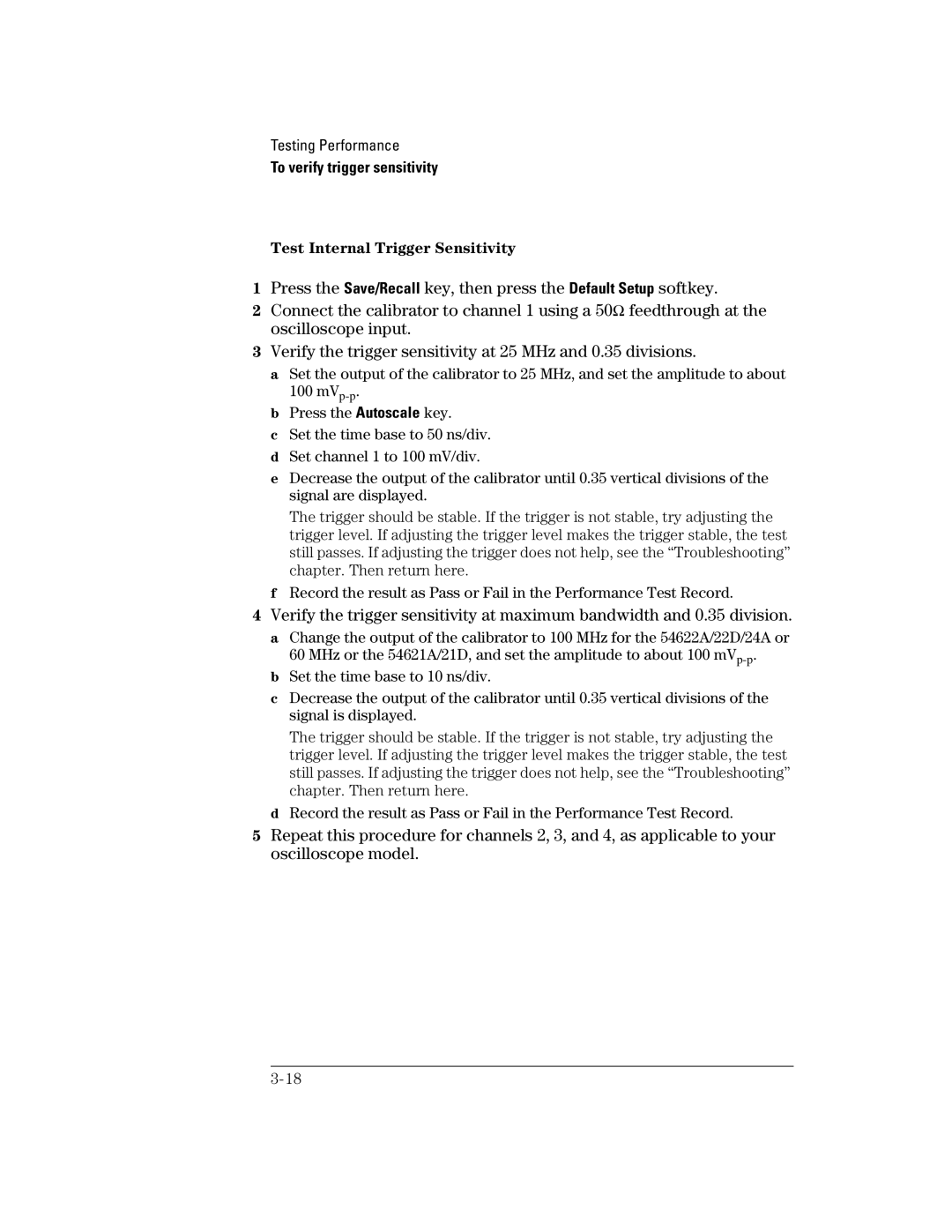Testing Performance
To verify trigger sensitivity
Test Internal Trigger Sensitivity
1Press the Save/Recall key, then press the Default Setup softkey.
2Connect the calibrator to channel 1 using a 50Ω feedthrough at the oscilloscope input.
3Verify the trigger sensitivity at 25 MHz and 0.35 divisions.
a Set the output of the calibrator to 25 MHz, and set the amplitude to about 100
b Press the Autoscale key.
c Set the time base to 50 ns/div. d Set channel 1 to 100 mV/div.
e Decrease the output of the calibrator until 0.35 vertical divisions of the signal are displayed.
The trigger should be stable. If the trigger is not stable, try adjusting the trigger level. If adjusting the trigger level makes the trigger stable, the test still passes. If adjusting the trigger does not help, see the “Troubleshooting” chapter. Then return here.
fRecord the result as Pass or Fail in the Performance Test Record.
4Verify the trigger sensitivity at maximum bandwidth and 0.35 division.
a Change the output of the calibrator to 100 MHz for the 54622A/22D/24A or 60 MHz or the 54621A/21D, and set the amplitude to about 100
b Set the time base to 10 ns/div.
c Decrease the output of the calibrator until 0.35 vertical divisions of the signal is displayed.
The trigger should be stable. If the trigger is not stable, try adjusting the trigger level. If adjusting the trigger level makes the trigger stable, the test still passes. If adjusting the trigger does not help, see the “Troubleshooting” chapter. Then return here.
dRecord the result as Pass or Fail in the Performance Test Record.
5Repeat this procedure for channels 2, 3, and 4, as applicable to your oscilloscope model.
